U.S. President Donald Trump on Wednesday said a trade deal with South Korea would be finalized soon, ahead of a meeting with the country's President Lee Jae Myung later in the day.
"Our deal with the Republic of Korea will be finalized very soon," he told delegates at the APEC CEO summit in the South Korean city of Gyeongju.
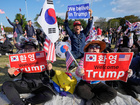 Full Story
Full Story
The United States and China are not going to resolve all the issues that divide them before presidents Donald Trump and Xi Jinping meet Thursday in Busan, South Korea.
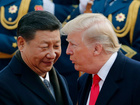 Full Story
Full Story
China signed an expanded version of a free trade agreement Tuesday with the Association of Southeast Asian Nations, with Premier Li Qiang pitching expanded economic ties with Beijing as an alternative to the protectionist policies of U.S. President Donald Trump.
Li Qiang told an ASEAN-China summit meeting after the signing that closer cooperation could help overcome global economic uncertainties. He said "pursuing confrontation instead of solidarity brings no benefit" in the face of economic coercion and bullying, in a swipe at the U.S.
 Full Story
Full Story
Russian oil company Lukoil says it is selling its international assets in response to sanctions imposed by U.S. President Donald Trump that aim to push Russia to agree to a ceasefire in its war against Ukraine.
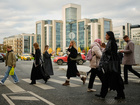 Full Story
Full Story
President Donald Trump treated his time in Japan on Tuesday as a victory lap — befriending the new Japanese prime minister, taking her with him as he spoke to U.S. troops aboard an aircraft carrier and then unveiling several major energy and technology projects in America to be funded by Japan.
 Full Story
Full Story
Brazil's leader Luiz Inácio Lula da Silva expressed confidence on Monday that his country and the United States will reach a trade deal. U.S. President Donald Trump also signaled that a deal is likely.
The statements came a day after the two presidents held talks on the sidelines of a regional summit in Kuala Lumpur, Malaysia's capital, which Lula described as a "very good meeting."
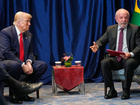 Full Story
Full Story
President Donald Trump said on Saturday that he plans to hike tariffs on imports of Canadian goods by an extra 10% because of an anti-tariff television ad aired by the province of Ontario.
The ad used the words of former President Ronald Reagan to criticize U.S. tariffs, angering Trump who said he would end trade talks with Canada. Ontario Premier Doug Ford said he would pull the ad after the weekend, and it ran Friday and Saturday during the first two games of the World Series.
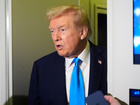 Full Story
Full Story
Chinese Foreign Minister Wang Yi told US Secretary of State Marco Rubio on Monday that trade negotiators from the two countries had reached a "framework consensus", Beijing's state media said.
"Through the Kuala Lumpur economic and trade talks, the two sides... reached a framework consensus on reciprocal solutions to current pressing economic and trade issues," Wang told Rubio, according to a readout of their Monday call published by state broadcaster CCTV.
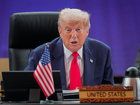 Full Story
Full Story
Wall Street is poised to add to last week's records when markets open Monday after President Donald Trump said he expected to reach a trade agreement with China.
Futures for the S&P 500 jumped 0.9% while futures for the Dow Jones Industrial Average gained 0.5%. Nasdaq futures, boosted by chipmakers, were up 1.3%. Nvidia was up 2.5% while Micron jumped 4.1%.
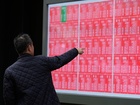 Full Story
Full Story
Spain's top criminal court said Friday it had opened an investigation for alleged complicity in crimes against humanity or genocide into executives at the steelmaker Sidenor for trading with an Israeli arms company.
Spain, one of the fiercest critics of the Israeli offensive in Gaza, said it had stopped exchanging weapons with the country after the conflict started with the October 7, 2023 Hamas attack on Israel.
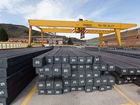 Full Story
Full Story



